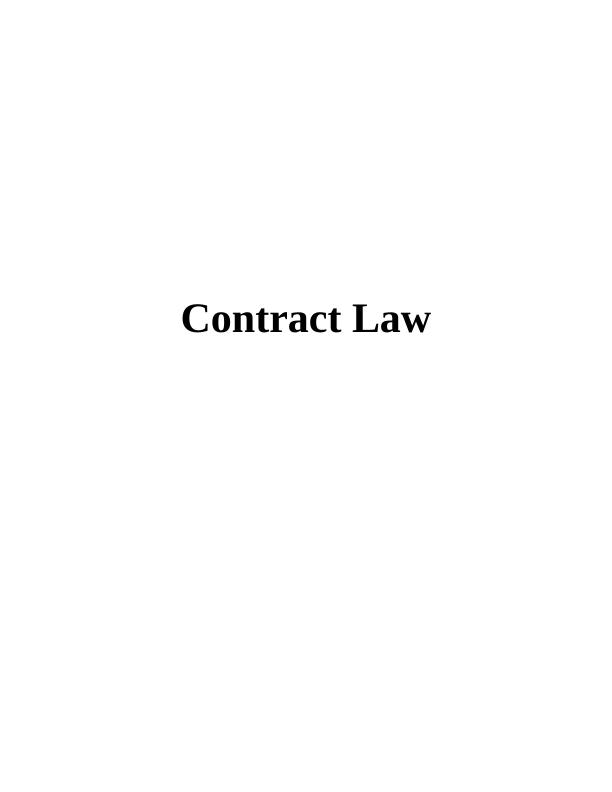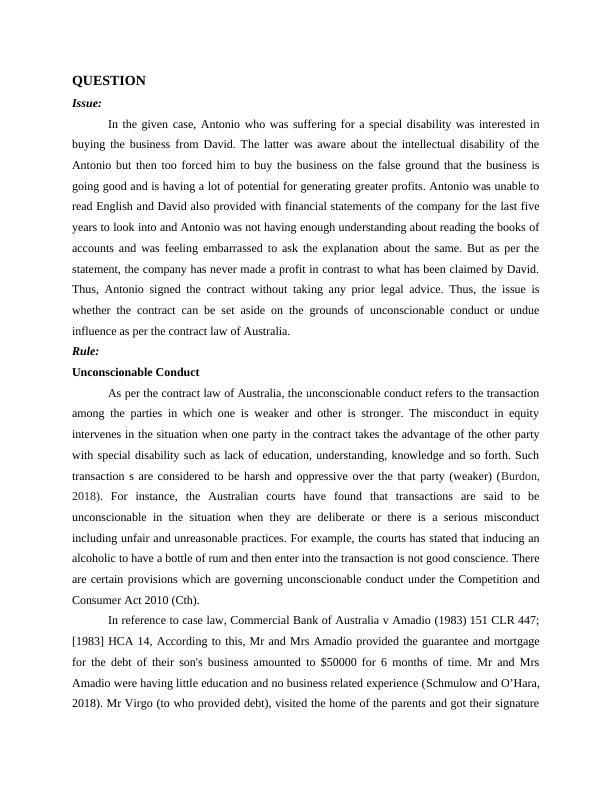Unconscionable Conduct in Contract Law of Australia
Added on 2023-01-05
6 Pages1670 Words52 Views
End of preview
Want to access all the pages? Upload your documents or become a member.
Law Study Resources- Assignment
|14
|2814
|349
Legal Remedies for Unconscionable Conduct and Oppressive Conduct
|8
|2272
|458
Unconscionable Conduct and Misrepresentation in Contract Law
|8
|2229
|411
Business Law Assignment Unconscionability
|10
|2643
|83
Unconscionability in Common Law and Statutory Law of Australia
|9
|2587
|62
Commercial Bank of Australia Ltd v Amadio (1983) 151 CLR 447
|7
|1762
|98



